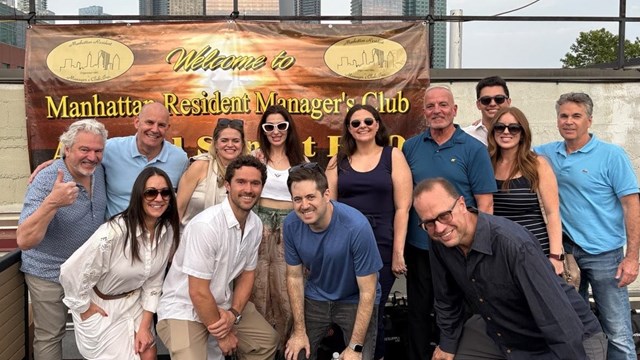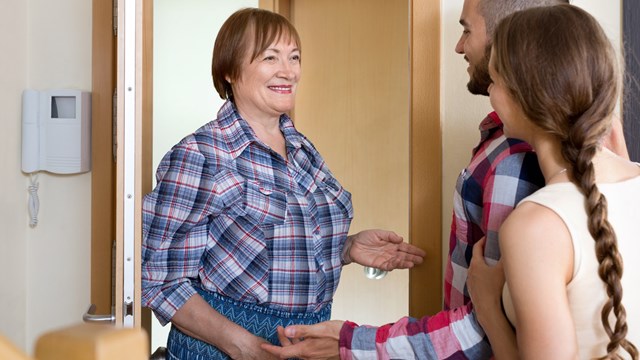
1st Rochdale Cooperative Group Ltd. was created in 1997 when a group of New York City housing cooperatives realized that deregulation of the Federal and State electric utility industry might cause their energy costs to skyrocket. Forced into action to protect the interests of the residential cooperative community, 1st Rochdale’s new chairman and chief executive officer Allen Thurgood joined with the National Rural Electric Cooperative Association (NRECA)–a 60-year-old trade organization of more than 900 electric cooperatives–to establish the fledgling utility company and empower shareholders to take control of their energy expenditures. NRECA supplied their technical experts on Manhattan’s power supply and helped Thurgood establish a board of directors. And the still-young utility is still working toward their original goal. "We take into account the needs of the market. What’s in it for the customer," says 1st Rochdale’s chief operating officer Greg L. Wortham about the group’s operating philosophy.
What Can We Do For You?
The customer-owned, non-profit 1st Rochdale provides "comprehensive energy management," supplying electricity, oil, gas, and some telecommunications services to the New York City and Westchester communities and plans to expand service to New Jersey and Long Island in the coming year. 1st Rochdale also provides its customers with energy conservation and management information, as well as direct customer service. The company also seeks to cut energy costs by purchasing electricity in bulk quantities, aiming to make decisions based on how they affect the community–rather than how they impact the bottom line. Their goal is to lower the consumer’s overall energy costs through effective energy management, to develop energy conservation and generation strategies, and to explore renewable energy sources.
1st Rochdale’s Twin Pines Fuels division was established in 1999 to provide oil, gas and petroleum to the group’s clients. The deep-water oil facility, located in the Bronx, supplies fuel to 14 states from Maine to Virginia. Competitive pricing and reliability won 1st Rochdale the bid to supply the entire Philadelphia public school system with heating for the winter of 2000, as well as landing them a two-year contract to supply county facilities with fuel in Baltimore.
In an effort to provide superior service and further lower costs to their customers, 1st Rochdale has also formed an alliance with Touchstone Energy, an electric cooperative of over 550 co-ops nationwide serving five million customers. As a partner with Touchstone, 1st Rochdale will have expanded access to research, advanced technologies and other energy resources.
Changing More Than Lightbulbs
1st Rochdale is also an active voice in supporting legislation to develop alternative energy sources and address energy-related environmental issues. The group is also at the forefront of researching and developing technologies to reduce emissions and clean up traditional power plants, leading to cleaner neighborhoods and a cleaner environment.
Central to the group’s conservation efforts is the Green Apple Renewable Energy Program, which was developed to find alternatives to current energy sources. The program is exploring photovoltaic (PV) technology (also known as solar energy) as a more environmentally friendly energy source, using microturbines and fuel cells instead of emission-heavy, non-renewable fossil fuels. PV’s silicon-based material doesn’t burn, so no pollution is created by its use.1st Rochdale believes that combined with energy efficiency, PV represents one of the cleanest, most reliable sources of electricity in the world.
Also figuring into the Green Apple program are Distributed Generation (DG) technologies. DG can produce electric power near the site where it’s needed most, making it particularly useful in remote, non-grid area. Says Wortham, "DG can be used to supply backup and standby power to help during peak usage times, for isolated and premium loads, and for combined heat and power co-generation applications."
This "green" technology may go a long way toward solving New York’s most pressing energy needs by improving the reliability of the city’s electric grid and eventually reducing the amount of energy the City has to import. Right now, New York City consistently breaks records for power use. Wires that carry the electricity are often pushed to their limits, which leads to brownouts and service failures, especially during hot sunny days. Technology that reduces peak loads on the grid by adding to the total power generated can help New York avoid power emergencies like those plaguing California.
1st Rochdale’s research into alternative means of energy and power-supply aim to eliminate issues like these. 1st Rochdale hopes to offer customers the option of buying energy generated entirely by environmentally-friendly sources by 2002. The PV panels mentioned earlier are in the process of being fine-tuned, and PV technology is also being developed to provide PV units to single family homes.
Wortham has been working with electric cooperatives for about 15 years. He has been very active in legislative affairs and served as legal counsel in Washington, DC. As a member of the City Club of New York, one of the oldest civic organizations in New York, he has had the occasion to work with other energy professionals and community leaders on energy conservation and environmental issues. He took a moment recently to speak with us about 1st Rochdale.
COOPERATOR: How does 1st Rochdale differ from the current energy companies that are out there, like Con Edison and others?
WORTHAM: We were created by and are owned by housing cooperatives. We take into account the wants of the market. They are concerned about quality of life issues like quality housing, a safe environment, childcare, and ways of minimizing their energy usage. Our board of directors is made up of cooperative residents and people who were a part of the housing cooperative movement. Our team is made up of people from the cooperative community–many of whom have backgrounds in management and energy fields. Their focus is from the top down. They have the customers view in mind from beginning to end. They know what the customers want because they live among them.
C: How does 1st Rochdale help their customers to cut costs?
W: 1st Rochdale will team up with a building’s management and take a look at what they have and what work they have done on the property. We look at the heat distribution system, boilers, chillers, lighting fixtures and other equipment, as well as appliances in individual apartments. Many of the appliances date back to the 1970s and 80s and are not energy efficient. We would then formulate ways of cutting back on the existing energy usage. We also work to maximize the state incentive programs that are out there, such as installing energy-efficient appliances. Using energy-efficient lighting and placing individual meters in apartments to cut down on energy usage are other solutions We also look at advanced technologies, such as photovoltaic and fuel cells as promising solutions.
C: Do you provide service outside of the co-op and condo community?
W: Yes. About one-third of our clients are co-ops and condos; one-third are individual homeowners, and one-third are commercial customers with properties as large as 50 stories high. We service over 150 zip codes in New York City and Westchester. By 2002, we want to be in a position to service New Jersey and Long Island.
C: What type of telecommunications services do you supply?
W: We supply one property in the Bronx with DirecTV, and we’re working on a satellite-Internet service in Westchester. In the New York market, there are many other providers. But we are having the same problems as other ESCOs (electric service companies) in terms of regulatory obstacles and finding ways to communicate electronically. We’re looking at other ways to draw the community together.
C: How will 1st Rochdale stay ahead and thrive in the energy market?
W: A few years ago there were 70 to 80 ESCOs now there are only five or six remaining–1st Rochdale is one of them. Many tried to get too big too quickly. We are taking steps to avoid that. We rely on cooperative coalitions, trade shows, networking and word-of-mouth to make our services known. We are working with electric cooperatives with over 60 years experience as energy providers.
1st Rochdale’s Web site, www.1strochdalenyc.net provides a host of information about the utility’s history, the services they provide, and emerging energy technologies. The site is multi-lingual and includes links to related topics, as well as information for those interested in utilizing their services. Since its inception, 1st Rochdale has tried to tune in to what most New Yorker’s are looking for in an energy provider: quality customer service, fair prices, and a sense of environmental responsibility. Time will tell if this conscientious newcomer has struck upon the right formula for success and longevity in the competitive energy marketplace.
Ms. Terrell-Ernest is a freelance writer living in Queens, New York.





2 Comments
Leave a Comment